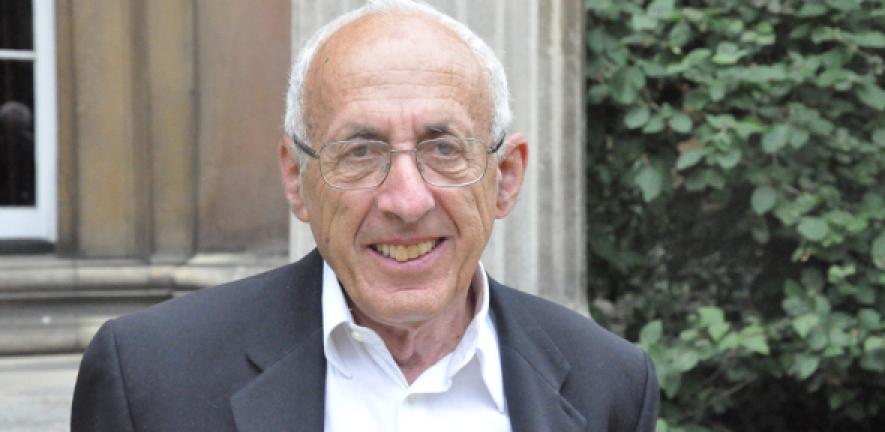
Dr Mays first came to Downing as a Natural Sciences student, matriculating in 1957. He became a lecturer in inorganic chemistry for many years, retiring in 2004. He was a very active Fellow at Downing College, taking on a range of roles there including Vice Master, Senior Tutor, Admissions Tutor and Director of Studies in Chemistry.
Those of us who knew Martin remember him fondly as a congenial colleague who took his University and College duties very seriously, and always had a twinkle in his eye as he related many an anecdote.
Tributes to Martin from former students and colleagues
As my PhD supervisor (1989-1992), Martin was a huge inspiration to me during my time at Lensfield Road. By allowing us the freedom to develop our projects, he helped shape much of my approach to research today. After graduating we met from time to time over coffee to put the finishing touches to a paper or just to catch up. It was always pleasure to see him and he will be sorely missed. RIP Martin.
Dr Greg Solan (King's 1989), Associate Professor of Chemistry, University of Leicester
Martin Mays designed a practical which was my clearest and most positive memory of Cambridge practical studies! The task was to gather soil samples from locations around Cambridge and then analyze them for lead. My friend and I cycled around and gathered roadside samples. The samples gathered under a bridge had the highest lead levels, likely because the bridge prevented rain from washing the roadside clean. Many lead levels were far above the allowed values. This practical showed us that chemistry could make a difference in the world.
I have spent my career so far in the research, development, test, and evaluation of equipment that detects chemical warfare agents. That protects the civilian and warfighter. My work theme: Chemistry for National Defense. And this was partly due to Martin Mays' practical.
Jim Staunton was my organic chemistry supervisor at St. John's. No dramatic memories, but Jim was a steady and knowledgeable supervisor who took good care of other students and me.
Dr Philip Evans (Churchill 1967)
My memories of Martin are many - when I arrived in Cambridge, he was most welcoming, if (like many of my new colleagues it seemed) a little eccentric but in the best of ways. He was a highly dedicated teacher of undergraduates; he balanced his life between his many duties in Downing and Lensfield Road with his typical, rather chaotic manner. My endearing memory of him is in the corridor in Lensfield Road outside our offices where, more than once, he walked past me, completely preoccupied, head down and focused on where he was meant to be going next.
Martin was one of the good guys. The term ‘stalwart’ is overused in these circumstances, but it certainly applied to Martin when he was active in research and teaching.
The first reminiscence that springs to mind dates back to 2000, when I was a year one PhD student with Dom [Wright]. Martin appeared next to me in the lab we shared (the Part 1A lab owing to a refurb on floor 3) and, knowing that I was an organometallic chemist, asked if I might like to take a few supervision groups for his Part II lecture course on Organometallics and Catalysis. I was surprised and delighted to be asked. I was less delighted when the next email on the topic was sent to the entire Part II cohort (100 students?) with a cc to me, announcing to them that I’d be arranging supervisions for all of them. Something of a baptism of fire, but we got there in the end. A shorter version: Martin was always keen to involve early-career researchers in his teaching!
Martin was heavily involved at Downing during my time with him - a lovely man full of enthusiasm and encouragement whom I will always regard as a good friend, who let us get on with our projects with the lightest supervisory touch.
My connexion with Martin goes back to Oct 1966, when I came up to Downing, and where he had recently joined the Fellowship. He was a great supporter of the Alumni Association, and was its Treasurer (26 years), Auditor (14 years) and President - the longest period of service of any officer since its foundation in 1922. As Secretary of the Alumni Association and a Fellow Commoner of Downing, I got to know him well over recent years.
Martin was an excellent colleague and very supportive of the younger members of the inorganic chemistry staff. His expertise was in the area of organometallic chemistry and catalysis. His chemistry was always elegant and innovative. He maintained a small, but highly productive research group throughout his time in chemistry and several of his students have gone on to hold prestigious posts in industry and academia.

